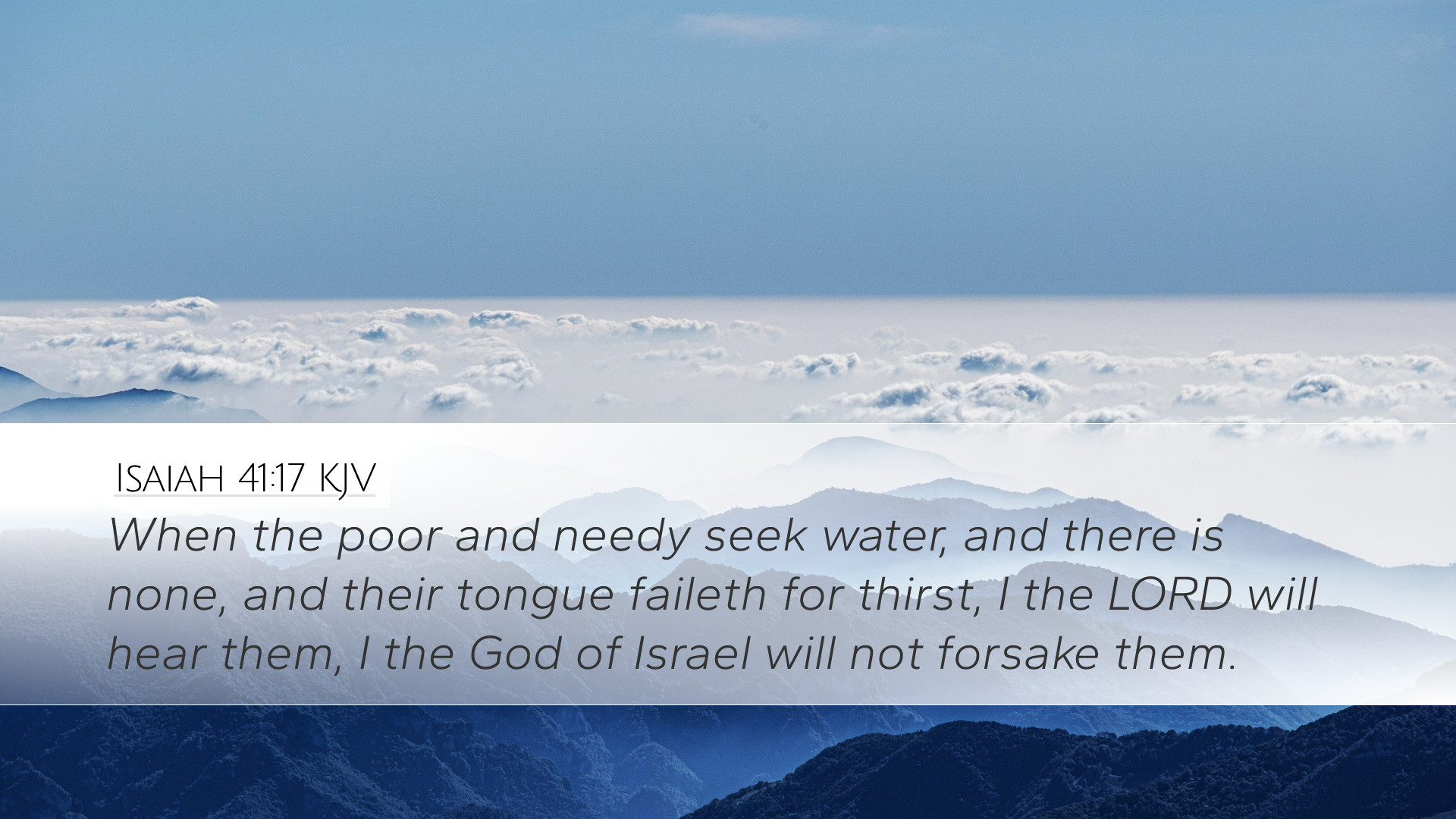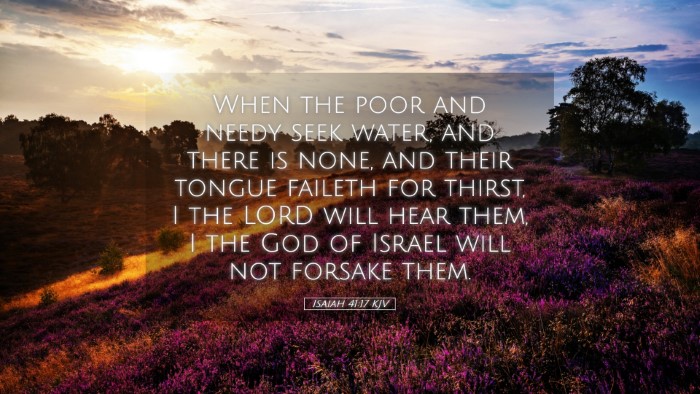Commentary on Isaiah 41:17
Verse: "When the poor and needy seek water, and there is none, and their tongue faileth for thirst, I the LORD will hear them: I the God of Israel will not forsake them."
Introduction
The verse Isaiah 41:17 carries profound implications for understanding God's compassion towards the vulnerable and His unwavering faithfulness. It rests in the context of encouragement to Israel amidst their fears and uncertainties. In this commentary, we will draw insights from various public domain commentaries to explore the depth of this promise.
Contextual Background
Isaiah speaks during a time of national distress for the people of Israel. They are experiencing exile, fear, and deprivation. This verse stands as a beacon of hope that underscores God's merciful engagement with His people, especially those in dire situations.
Theological Insights
- God's Readiness to Hear: The phrase "I the LORD will hear them" emphasizes God's readiness to respond to the cries of the needy. Matthew Henry notes that God's ear is open to the supplications of those who seek Him in their troubles.
- Identification with the Needy: Albert Barnes points out that the characterization of "the poor and needy" reflects a deeper spiritual truth — that all humanity is needy in the sight of God. This indicates that none are beyond the reach of God’s mercy.
- Divine Promises of Provision: Adam Clarke elaborates on the significance of God promising to provide water, a metaphor for sustenance, both physical and spiritual. Water in Scripture often symbolizes life and refreshment, illustrating God’s provision in desperate times.
- Assurance of Presence: The conclusion that "I the God of Israel will not forsake them" underscores a covenant relationship. It assures believers that God’s faithfulness does not waver, reinforcing the idea that in times of distress, God remains present and active.
Pastoral Applications
This verse holds significant implications for pastoral care. It reassures both pastor and congregant alike of God's intimate knowledge of our struggles. Pastors are encouraged to remind their congregations that no one is too forgotten or too lost for God to reach.
Exegetical Analysis
Examining the original Hebrew text provides insight into the depth of the declaration. The words used to describe the needy are indicative of desperation and helplessness. The Hebrew word for "poor" (דָּל dal) implies a state of reduced capacity and lack, while "needy" (אבל 'ābel) affirms utter dependence on God.
Spiritual Reflections
This passage invites us to reflect on our own needs — both spiritual and physical. It urges believers to acknowledge their dependency on God and seek Him in sincerity. In moments of spiritual dryness, the call to remember God’s promises can bring restoration to the soul.
Conclusion
Isaiah 41:17 serves as a reminder of God's compassionate ear towards those in need. Whether in personal struggles or communal crises, the assurance that the Lord hears the cries of the needy remains a comforting truth for believers throughout the ages. The depth of God's promise enriches our understanding of His divine character — one who is ever-present, compassionate, and faithful.


